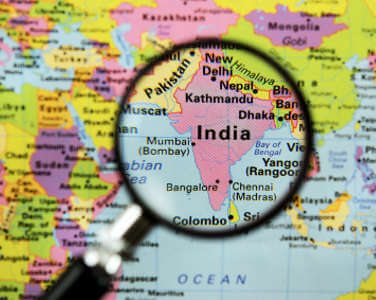
Before the BJP took office the state recorded two or three attacks against Christians per year, they said, whereas Jabalpur Archbishop Gerald Almeida said that in the past five years 65 baseless charges of forceful conversion—commonly accompanied by mob violence—have been registered in his diocese alone.
“There are some groups who are closely monitoring the Christian movement, and these people are bent on creating problems for the Christians for the past five years,” Almeida told Compass Direct News.
The state is not able to control these groups, he added. Indeed, police routinely working with Hindu extremist groups filed an average of more than three unsubstantiated complaints of “coerced” conversions each month in the past five years, according to the Catholic Bishops’ Conference of Madhya Pradesh (See sidebar “Police Collusion Seen in ‘Force Conversion’ Complaints.”)
In the first eight months of this year, Madhya Pradesh saw the third highest number of attacks against Christians and Christian institutions in the country with 11, behind Karnataka with 43 and Andhra Pradesh with 14, according to Christian advocacy organizations.
The Rev. Anand Muttungal, spokesman for the Catholic Bishops’ Conference of Madhya Pradesh, said growing attacks on Christians were a symptom of fear among Hindu extremists that the Catholic Church’s influence is spreading.
“The church as an organization is doing very well in many fields,” Muttungal said. “It causes those fundamentalists to worry. It could be one of the main reasons for the continuous attacks on Christians.”
Madhya Pradesh has a Christian population of 170,381, only 0.3 percent of the total in the state, according to the 2001 census. The state’s history of religious intolerance runs deep, with an “anti-conversion” law passed in 1968 that has serves as a pretext for harassing Christians.
Igniting anti-Christian violence shortly after the BJP came to power was an incident in Jhabua district, where the body of a 9-year-old girl called Sujata was found in one of the Christian schools on Jan. 11, 2004. Although a non-Christian confessed to the crime, Hindu extremists used the event to justify various attacks against the Christian community.
Abuses became so rampant in 2005 and 2006 that the National Commission for Minorities (NCM) sent a fact-finding team to Madhya Pradesh and Chhattisgarh in June 2006. Investigators found that Hindu extremists had frequently invoked the state’s anti-conversion law as a means to incite mobs against Christians and to get Christians arrested without evidence.
Jabalpur Archbishop Almeida cited cases chronicled by the NCM such as the arrest under the anti-conversion law of two local women who were merely distributing gospel tracts in March 2006. Almeida also cited the NCM report on the jailing of four pastors in January 2006 for alleged “forceful conversion” after Hindu extremists from the Bajrang Dal dragged them to a Hindu temple and forced them to deny Christ.
Catholic Church records show that in 2007, a 70-year-old woman identified only as Mrs. Godwin was arrested along with another woman on charges of forceful conversion; they too were only distributing religious literature, a right they had under the nation’s constitution.
Christian leaders said one aim of such abuses of the state’s anti-conversion law is to tarnish the image of Christians by showing them as lawbreakers. Hate propaganda and spurious allegations against Christians continue unabated in the state, church leaders said.
The customary practice in India and especially in Madhya Pradesh, they said, is for Hindu extremists to raise false allegations on the slimmest of pretexts and get police to make hurried arrests.
Political Machinery
After the NCM report in 2006 first documented the violence, the Madhya Pradesh political machinery’s influence became evident when State Minorities Commission Chairman Anwar Mohammed Khan asserted that reports of Hindu extremists attacking Christians in the state were “baseless.”
Khan told Frontline magazine that extremists had not targeted Christians. The magazine also quoted state Chief Minister Shivraj Singh Chauhan as saying the BJP government was greatly concerned about “unethical conversions” – presumably of Hindus to Christianity.
The magazine criticized the state Minorities Commission for speaking “the same language as the Bajrang Dal and the state chief minister,” thereby failing its mandate to defend minorities.
This year the commission tried to increase state control over church activities, unofficially recommending that the government enact a law to set up a board to manage church properties such as schools, colleges, hospitals and charities. The Christian community strongly protested, and the state withdrew the proposal.
Archbishop Leo Cornelio, archbishop of Bhopal, said the Minorities Commission recommendation “shows beyond doubt that it is disloyal to minorities” and “loyal to the government,” according to the Indian Catholic.
The battle over state control of church properties is not over. Muttungal told Compass that the Minorities Commission has started to collect details of church properties through the Education Department. It is certain, he said, that this will lead to a legal battle involving the Education Department, Minorities Commission and the Catholic Church.












































